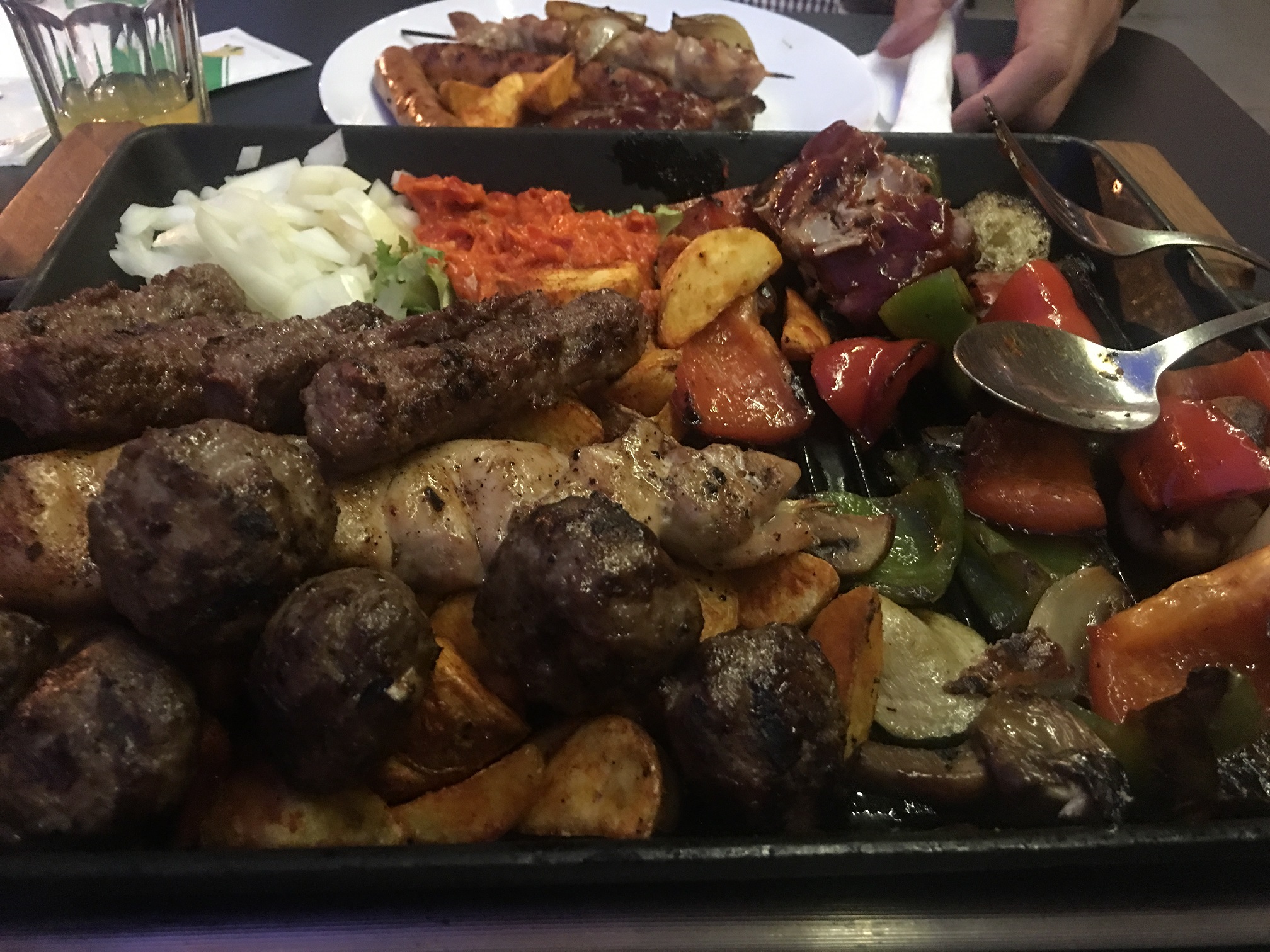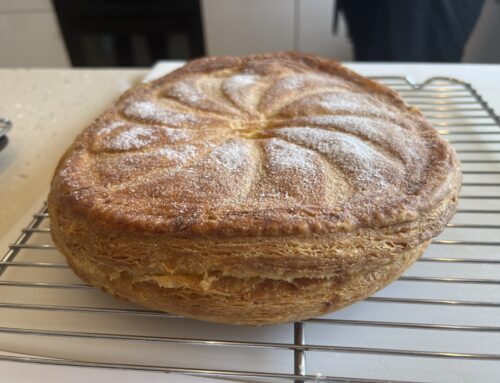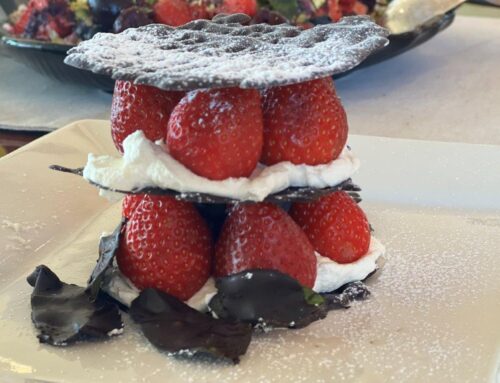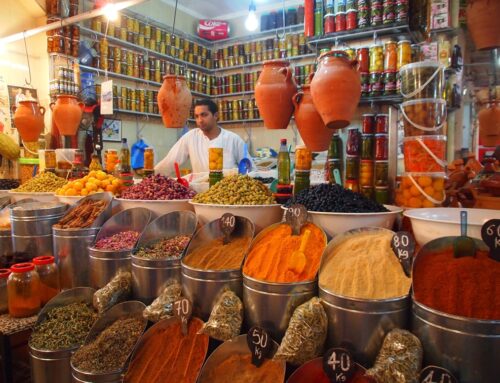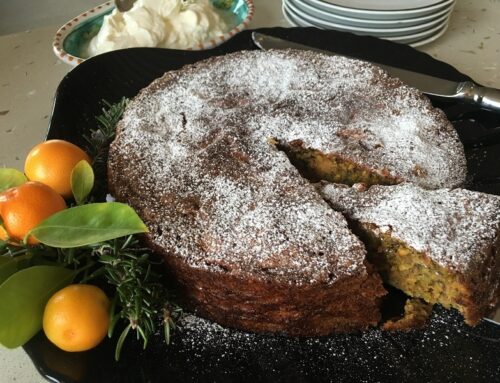Croatian Ajvar is a popular dipping sauce which is served with meats, and particularly ćevapčići, or chevapi sausages, meatballs, chicken and sausages and Mediterranean vegetables. Ajvar is a capsicum pepper-based condiment with aubergines, garlic and chilies, which also is lovely as a spread; I loved it. You can see it here nestled into the meat platter – when I asked for some more they brought out this small bowl of it!
Homemade ajvar is, as usual, the best; however, although it is labour intensive to make, it will be well worth it. Traditionally, in Croatia, ajvar is prepared in autumn, when the peppers are most abundant and cheap; it is preserved in glass jars and consumed during the year, a little like the Italian passata. The quantity below makes a large amount and so you may like to halve it!
Makes 4 large jars and 1 small jar.
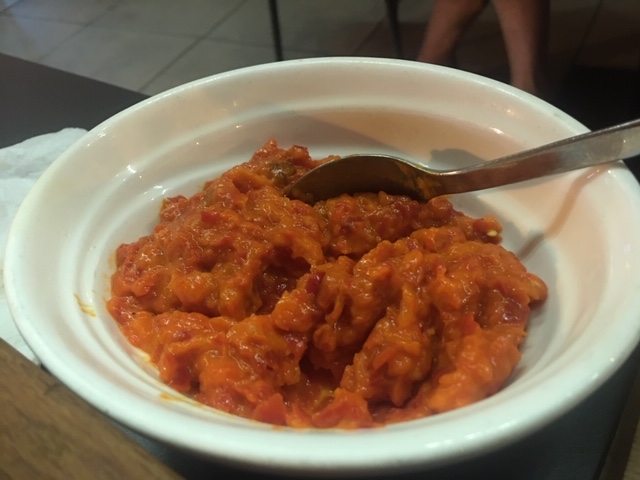
| Ingredients | |
| 10kg sweet capsicums, peppers
2.5kg eggplant 1 head of garlic 3 hot chili peppers or to taste |
500ml extra virgin olive oil
3 tbsp sea salt 100ml vinegar
|
Pre-heat the oven to 190°C. cut the capsicums and eggplant in half and place skin side up on a baking paper lined oven tray. And roast them until theirs skin blacken, after about 10-15 minutes.
Once roasted let them rest in a plastic film covered dish, to allow them to cool down, making it easy to remove the skin.
Carefully peel off the charred skin and remove the seeds from the peppers. Scoop out the flesh of the eggplant and discard the skin.
Place the peppers and eggplant into the food processor; add the garlic and finely chopped chili peppers; process until smooth, but there will still be some texture.
Gently heat 200ml of extra virgin olive oil, not too hot, and add to the processed peppers and eggplant mixture. Process well.
Add the sea salt and vinegar. With the machine running, gradually add the remaining olive oil until well emulsified.
Place this mixture into a large pot and slowly simmer for at least an hour and a half.
Once it is cooked, spoon into the cleaned, sterilised and hot jars. Close them and turn them upside down for 2-3 minutes to expel the air, then turn the right way up again.
Cover with a cloth and leave to cool. They are then ready to store in a cool and dark place and ready to consume when required.

